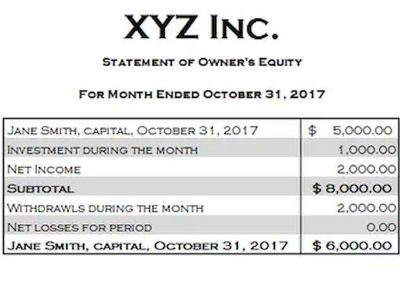
Cloud ERP systems are hosted on remote servers and accessed through the internet. Cloud ERPs like SaaS products offer better scalability, allowing businesses to easily adjust resources and features as needed without significant upfront investment in hardware. Cloud ERP systems typically have a subscription-based pricing model, and updates/maintenance are managed by the ERP provider (not the company itself). Enterprise resource planning (ERP) is a platform companies use to manage and integrate the essential parts of their businesses. Many ERP software applications are critical to companies because they help them implement resource planning by integrating all the processes needed to run their companies with a single system. Organizations have always struggled to balance traditional ERP’s high costs and complexity against the need for customized features and flexibility, all while meeting the demands of the business.
What does ERP stand for in accounting?
- Enterprise Resource Planning (ERP) system consists of different sets of software that are used to integrate the business functions in a company or organization.
- As was mentioned several times, ERPs, like most business SaaS, generate a lot of activity on their platforms, and this activity results in a wealth of data and business intelligence.
- The complexity of the global economy and modern consumer demands have made streamlining business processes and managing and optimizing data critical.
- Enterprise Resource Planning solutions monitor and unify every facet of a company’s operations, spanning accounting, inventory management, human resources, and customer relations.
- 90% of ERPS implementation have been running past their planned date(Scott & Vessey, 2002), and just 35% of ERPS executions have been done on time and inside spending plan(Dong, Neufeld, & Higgins, 2009).
In order to organize and run it successfully, the entrepreneur must possess qualities of a very high order. The man at the helm of the business must be a really Certified Public Accountant superior person and possess outstanding organizing ability. He must understand human nature, so that he can make each person do his best.

The Challenges of Implementing ERP

ERP stands for enterprise resource planning and is a type of software system that automates and manages core business processes such as finance, HR, manufacturing, supply chain operations, and more to optimize performance. Implementing ERP applications can bring significant financial benefits to organizations. One of the key advantages is improved cost management and reduced operational expenses. By streamlining business processes, eliminating redundant tasks, and automating manual activities, ERP software systems help reduce labor, paperwork, and error costs.
How does an ERP solution work?

Some companies may also be reluctant to let go of old software that worked well in the past. The key is to prevent ERP projects from being split into smaller projects, which can result in cost overruns. Some businesses benefit from enhanced real-time data reporting from enterprise resources definition a single source system.

There are dozens of ERP vendors, most of which offer both on-premises and cloud options. Some vendors of entry-level ERP sell to both small and midmarket (also called medium-sized) businesses — often lumped together as SMBs — and claim their products can scale to accommodate growth. A company could experience cost overruns if its ERP system is not implemented carefully. Once all departments are tied into the system, all data is collected Interior Design Bookkeeping on the server and becomes instantly available to those with permission to use it. Reports can be generated with metrics, graphs, or other visuals and aids a client might need to determine how the business and its departments are performing.
- ERP streamlines and integrates a company’s data into one database system to save and access data in one place.
- ERP systems are not just limited to managing sales, inventory, and finance; they also play a crucial role in harnessing the potential of human resources.
- Learn about tools and software that can help you land a fulfilling career in cloud-based operations and strategy.
- The various tasks and actions that can be streamlined include inventory management, accounting and finance, project management, purchasing and human resources.
- The efficient management of human resources is essential for any successful organization, and ERP software provides the tools necessary to achieve this goal.
- Implementing and maintaining open-source ERP systems may require more technical expertise and resources compared to commercial ERP solutions.
